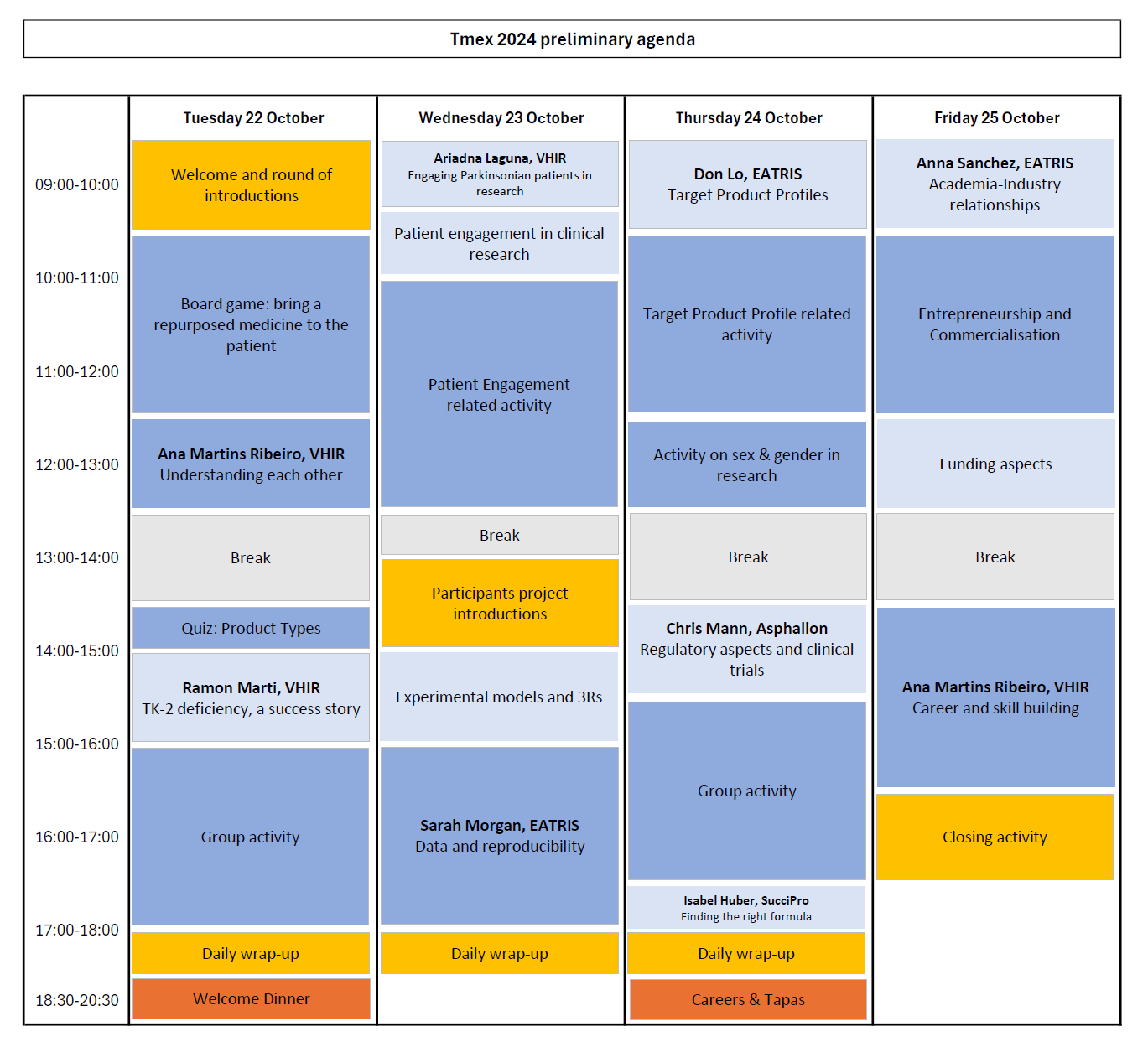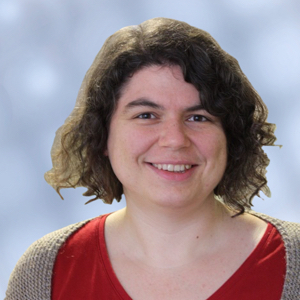| Date & Time | 22-25 October 2024 |
|---|---|
| Address | Palau Macaya Pg. de St. Joan, 108 08037 |
| Location | Barcelona, Spain |
Join our 4-day course for PhD students and Postdocs and learn how to make your biomedical research more meaningful.
Are you a biomedical researcher who wants to explore how your work can be turned into patient benefit; or do you want to learn more about the process of medicinal product development and the career prospects available in the field? This course explains how translation of biomedical discoveries into products that provide patient benefit requires a truly multidisciplinary effort.
How does the course work?
Translational Medicine Explained (TMex) is an interactive 4-day course focused on how research can be successfully translated from the laboratory to the clinic. You will learn from real-life scenarios presented by experts in the field, and group assignments about the elements needed for successfully translating biomedical research into patient benefit. Before attending the 4-day course, an 8-hour e-learning course will equip you with the essential knowledge to make the most of the course.
Who is the course for?
Designed for early-career researchers (e.g. late-stage PhD students, early postdoctoral and medical students in academia and/or industry), TMex provides skills and knowledge directly applicable to your research, along with professional development opportunities (e.g. networking and development of teamwork skills) and exposure to a variety of career opportunities available in translational medicine.
What will I learn?
Covering topics as diverse as target validation, patient engagement and entrepreneurship, the course will meet the following learning objectives, where participants attending the course will be able to:
- Describe the key steps and questions to be addressed when translating scientific discoveries into medical products;
- Define the different stakeholders and multidisciplinary experts involved in translation and the importance of strong partnerships;
- Recognise the importance of collaborating with patients and demonstrate strategies for engagement;
- Examine key translational medicine bottlenecks and opportunities.
How to apply and costs?
Apply for the course via this form. We are only accepting 30 participants, so make sure you apply soon. Course fee = €650. This includes daytime catering plus 2 evening social activities. Please note that travel and accommodation is not included.
EATRIS members, VHIR and I2TRON students – discounted course fee = €500.
EUPATI fellows and candidates from EU-13 countries* – 3 seats are available for a €250 fee (which includes accommodation).
Green discount – €75 will be refunded to participants coming by train from further than 500km.
*Participants based in Bulgaria (BG), Croatia (HR), Cyprus (CY), Czech Republic (CZ), Estonia (EE), Hungary (HU), Latvia (LV), Lithuania (LT), Malta (MT), Poland (PL), Romania (RO), Slovakia (SK) and Slovenia (SI).
About the course organisers
EATRIS is a non-profit organisation bringing together people, resources and services to translate scientific discoveries into benefits for patients. TMex is organised in collaboration with Vall d’Hebron Institute of Research (VHIR) and supported by the ”La Caixa” Foundation.
Course outline
- REPURPOLIS educational bord game
Rosan Vegter, Senior Rare Diseases Innovation Officer at EATRIS
Navigate the complex journey of bringing a repurposing drug candidate to patients. Work your way through real-world challenges, from formulation, preclinical and clinical research, patient engagement, funding, regulatory interactions to commercialization, and patient access. - Translational success stories
Ramón Martí Seves, Group Leader at VHIR
Hear from VHIR researcher Ramón Martí Seves about the rewarding journey from understanding a rare disease (TK2 deficiency) to successfully treating patients. - Understanding the opportunities of cloud computing, AI and open science for Translational Research
Sarah Morgan, Training Manager at EATRIS
In an interactive session you will find out more about how you can use cloud computing, AI and open science to advance your translational research, and how Translational Research becomes more powerful with new data technologies and when being FAIR. - At the heart of translational medicine: the patient
How do you make sure that your research and the treatments you are developing are indeed what patients need? Why and how to make patients voices heard through the whole drug development process? This is the kind of questions every translational researcher needs to address and keep in mind during all stages of their work. This session will provide insights, tools and resources to help you incorporate patient engagement in your research path.
To get a more comprehensive idea of what to expect from TMex, you can have a look at our previous courses: TMex@Berlin 2023 report, TMex 2023.


















